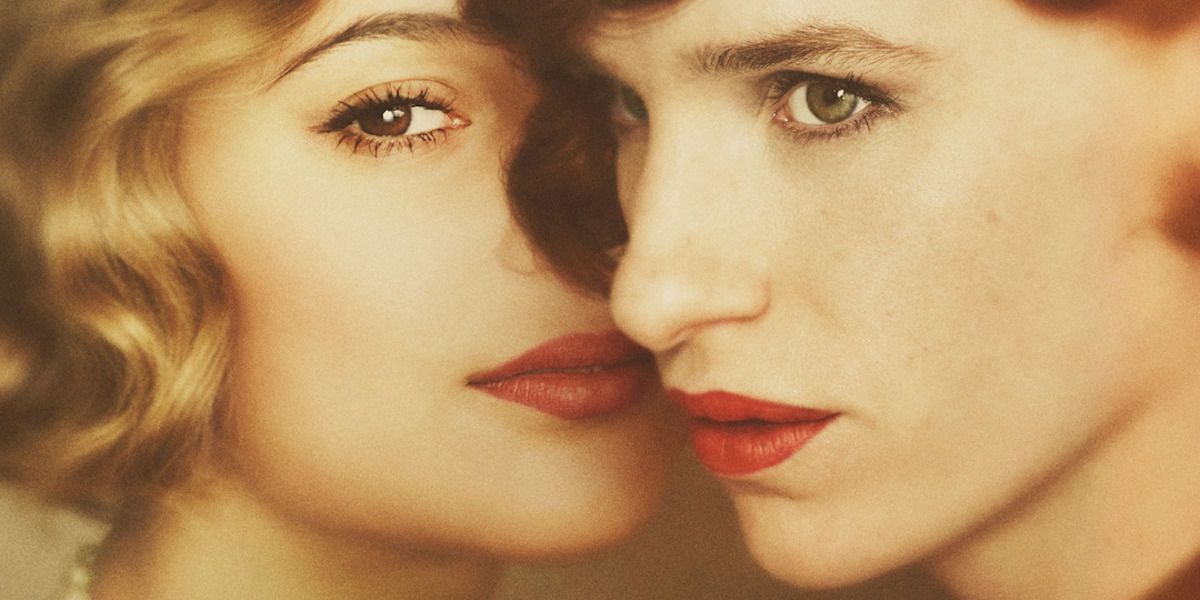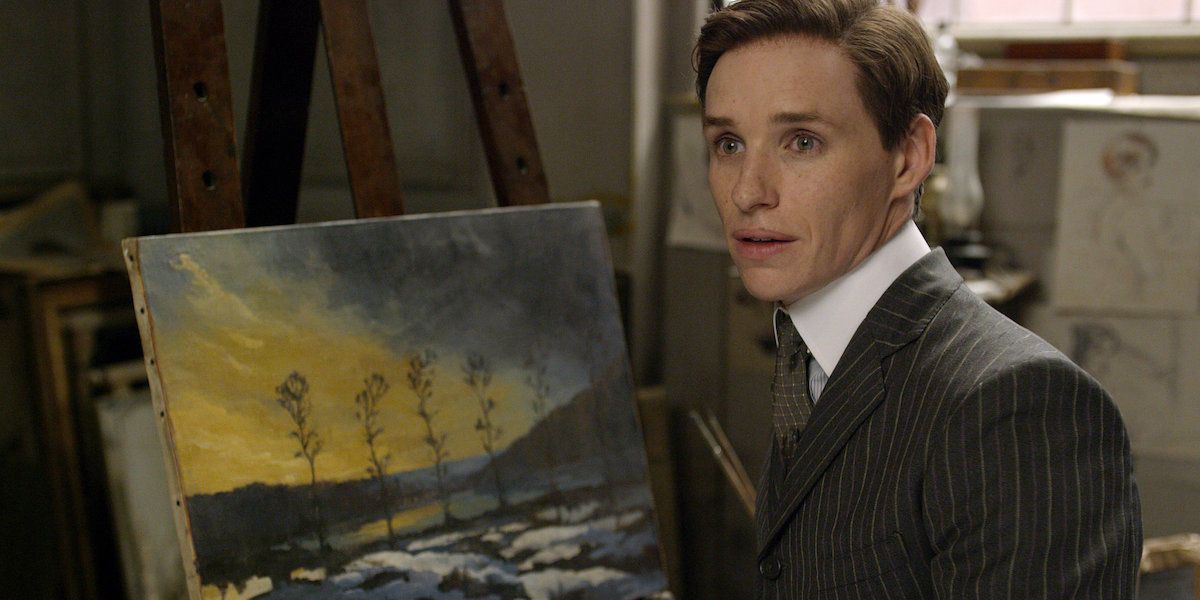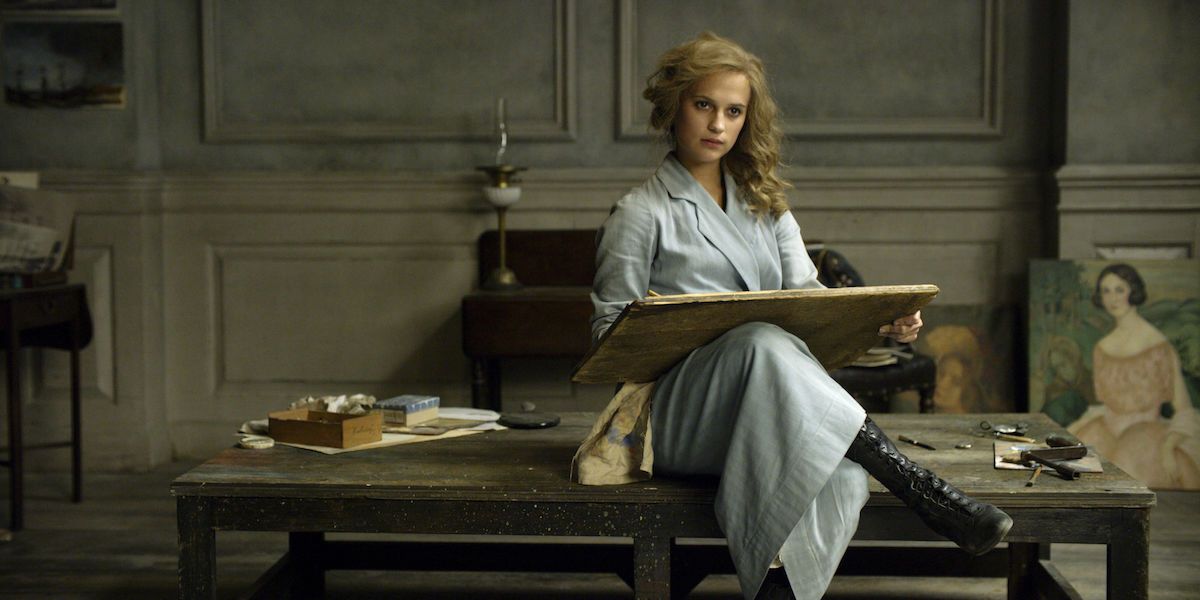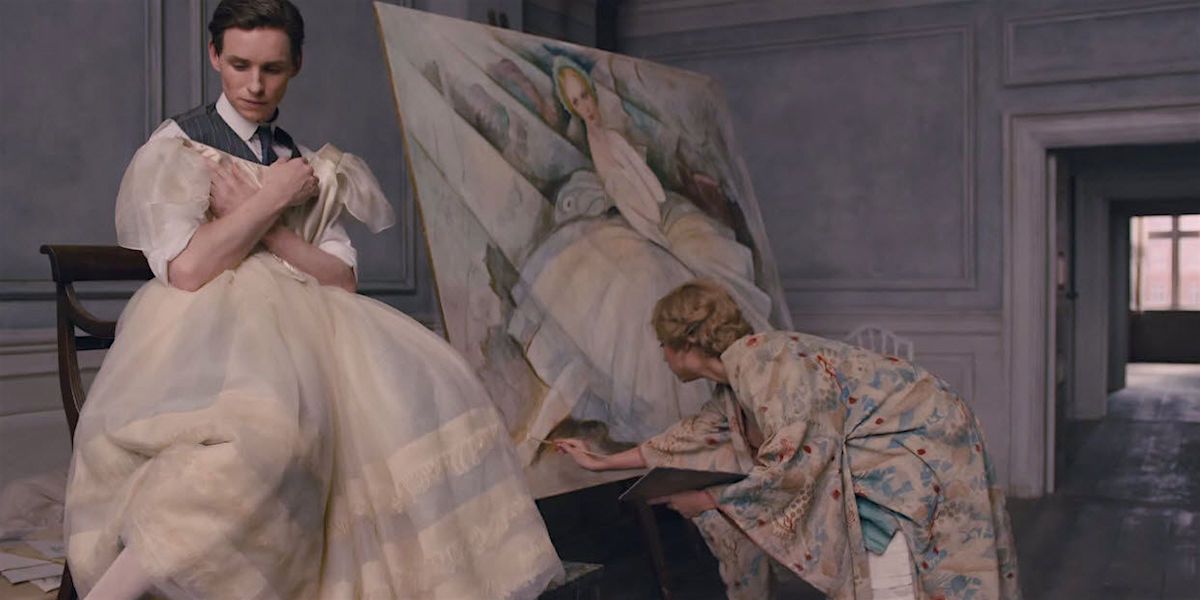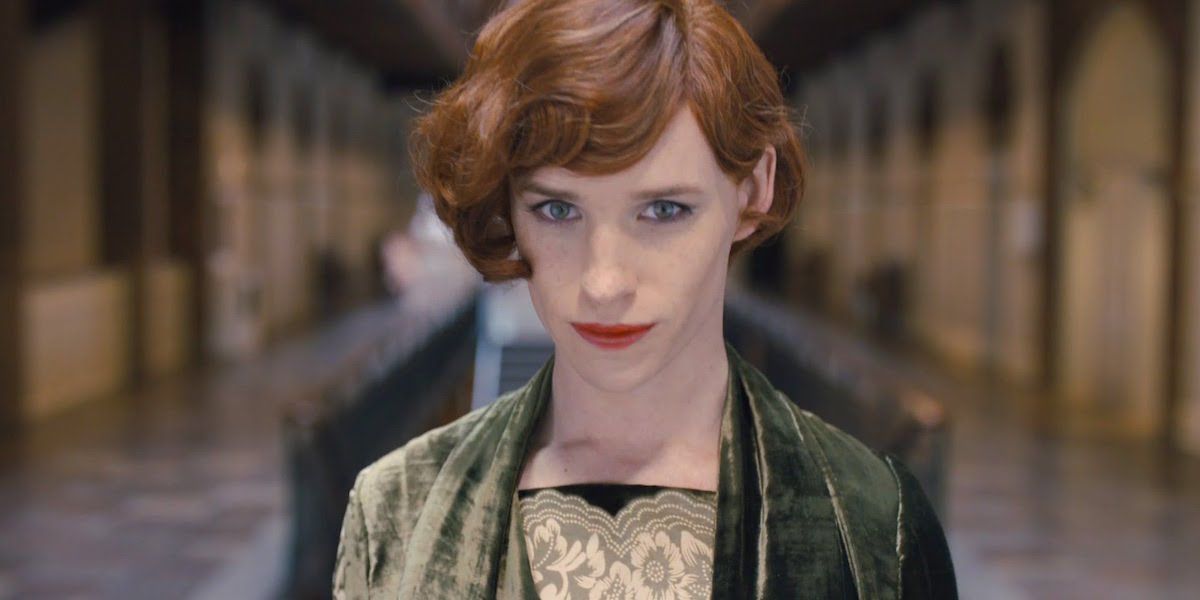The Danish Girl is a beautiful film with brave performances - though Hooper often struggles to translate Lili Elbe's life into memorable movie drama.
Einar Wegener (Eddie Redmayne) and his wife Gerda Gottlieb (Alicia Vikander) are staples of the Denmark art scene. While the pair's reputation stems from Einar's work as a landscape artist, Einar dedicates a significant amount of time to supporting Gerda's efforts as a portrait painter - to ensure that his wife's talents are not eclipsed by his rising fame. A doting husband, Einar's love for Gerda is apparent to all of their friends; yet, Einar is harboring a secret - a secret that will change the pair's relationship forever.
When Einar substitutes for one of Gerda's female models (posing in a dress and stockings), the landscape painter realizes he is more comfortable presenting as a woman than a man. Husband and wife embrace the revelation, creating the persona of Lili Elbe, so that Einar can live openly as a woman. Spurred by Lili's transformation, Gerda funnels her emotions into a new series of portraits - surpassing Einar's prior success with paintings of Lili. However, as Lili disassociates from Einar, she becomes increasingly depressed by her male form - forcing the couple into a series of tough decisions and dangerous medical procedures, so that Lili can be made whole.
Based on David Ebershoff's fictionalized telling of Lili Elbe's journey into transgender self-discovery, The Danish Girl was adapted for the big screen by writer Lucinda Coxon and director Tom Hooper (The King's Speech). Ebershoff's award-winning novel took liberties with Lili Elbe and Gerda Gottlieb's story; though, even when the book attempted to compartmentalize Elbe's experience into a straightforward narrative, The Danish Girl was still an insightful and humane glimpse into gender identity. Building on the novel's foundation, The Danish Girl is a beautiful film with brave performances - though Hooper often struggles to translate Lili Elbe's life into memorable movie drama.
The Danish Girl lives up to the woman who inspired it; yet, Elbe's story is the most interesting and successful aspect of Hooper's movie adaptation. Coxon and the director try to pack in as much of Elbe's experience (filtered through the lens of Ebershoff's fictional telling) as possible but the sensitive and deeply personal subject matter gets undercut by comparatively standard docudrama narrative beats and fictionalized re-imagining that regularly distort actual events to produce a more digestible viewing. Understandably, it was necessary to both chart the breadth of Elbe's journey from husband to transgender icon and fit the tale into a palatable narrative but in its effort to highlight key moments, The Danish Girl often muddles its titular figure with bullet-points that are more focused on what happened than producing nuanced reflection.
After an Oscar-winning turn in The Theory of Everything, it should come as little surprise that Eddie Redmayne is enchanting in the roles of Einar Wegener and Lili Elbe. Hopper supports his actor with small flourishes that emphasize Einar's preoccupation with feminine form, mannerisms, and clothing, and while Redmayne's work as Einar is solid, the actor shines brightest in his portrayal of Lili. In less talented hands, under less sincere direction, portraying Lili could have been a marketing gimmick but The Danish Girl works hard to ensure that Lili isn't just Redmayne in makeup and female clothing. She's a fully-formed character, distinct from Einar - a prisoner in a foreign body that, above all else, yearns to feel comfortable in her own skin. It's a convincing performance - one that is made all the more impactful when combined with Alicia Vikander's take on Gerda Gottlieb.
Gerda's arc in The Danish Girl produces many of the film's most profound scenes but also accounts for several of its biggest missed opportunities. A significant portion of The Danish Girl follows Gerda's efforts to satisfy her own ambitions and needs while still supporting Lili in her transformation. Yet, outside of Lili, nearly every character that Gerda encounters is designed, with a heavy hand, to emphasize the Wegener's increasingly complex (and tangled) marriage.
In particular, the inclusion of Einar's childhood friend, Hans Axgil (Matthias Schoenaerts) is an example of Hooper's struggle to balance what is interesting about Lili and Gerda with what is necessary for The Danish Girl. The dynamic between Hans, Gerda, and Lili is intriguing but the character becomes less impactful the more Hooper commits to his inclusion - and takes the spotlight off of Lili and Gerda.
Any film, especially a docudrama, is challenged with finding the right balance between covering important bases and removing facade for fresh interpretation. In spite of great character drama, The Danish Girl jumps from one plot point to the next in an attempt to cover ten-plus years worth of history in a single narrative - while chronicling both Lili and Gerda's perspectives on love, identity, gender, and marriage. It's an ambitious mix, and Hooper succeeds more often than he falls short, providing plenty of thoughtful insight along the way, but The Danish Girl is still clumsy in its execution - mired by melodrama that is, on the surface, interesting but doesn't actually develop into comparatively meaningful payoff.
Given the subject matter, and some genuinely disturbing scenes of early 1900s healthcare, The Danish Girl will not be as approachable to casual viewers as The King's Speech - but Lili's story is well-worth seeing. Hooper offers a striking glimpse into the lives of Einar Wegener, Gerda Gottlieb, and Lili Elbe - albeit a glimpse that is limited by relatively standard docudrama contrivances (often substituting fact for dramatized fiction). Both Redmayne and Vikander deliver convincing and respectful depictions of their real-life counterparts - with an especially earnest exploration of the pair's complicated relationship that, though unorthodox, is a heartening example of love in the face of uncertainty.
Hooper aims high with The Danish Girl, and falters in the process, but the filmmaker once again succeeds where it matters most: imbuing larger-than-life historical figures with humanity and a framework through which the filmmaker can comment on modern day social issues.
TRAILER
The Danish Girl runs 120 minutes and is Rated R for some sexuality and full nudity. Now playing in theaters.
Let us know what you thought of the film in the comment section below.

